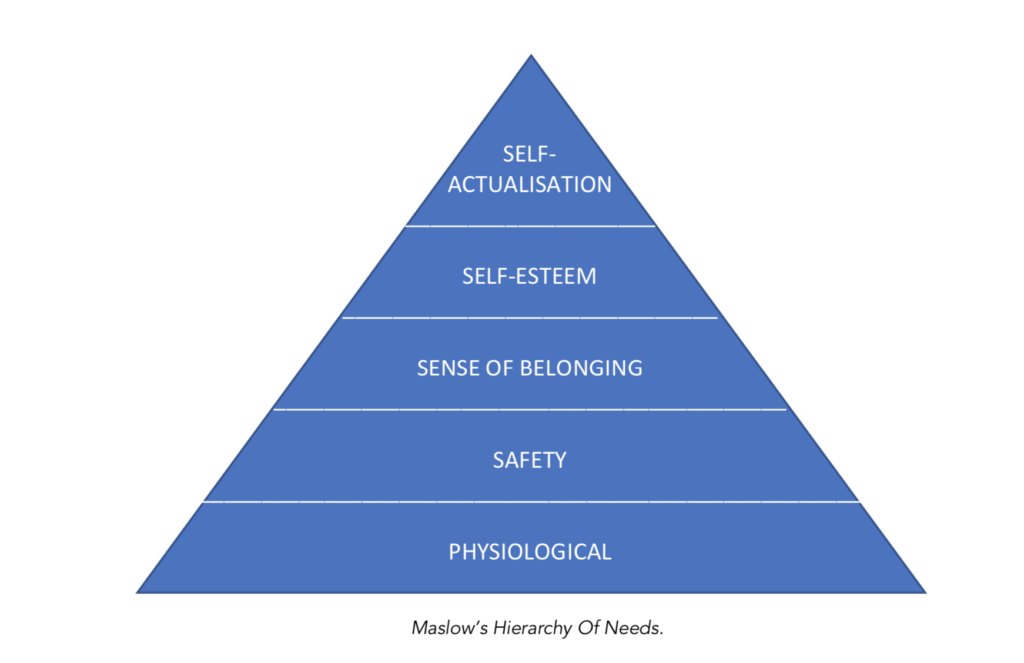As I write it’s been about four weeks since cinema exhibition was upended by the Government’s advice about staying away from public spaces and the subsequent UK-wide Lockdown measures were put in place.
Like many working in exhibition and distribution I have been in shock, and like many I spent the next few days making changes to distribution plans, postponing cinema bookings, talking to clients about suspending exhibition projects and mentally processing the position we suddenly found ourselves in.
As I surfed through the DABDA curve I started to think about what happens next and how we can best emerge from the other side. As a punter who enjoys cinema, arts & culture, bars and restaurants I began to consider which messages might encourage me back into a public life, and what we might need to keep at the forefront of our minds whilst contemplating our reopening plans.
However quickly we come back, on the other side of this closure the world will be a different place for cinema. We will need to have more empathy than ever with our customers in order to ensure that they continue to be our customers.
What messages should we use? What might our programmes look like? How can we reopen safely and reassuringly and also give the celebration of our art form priority?
To try and find some insight into how we may react to this pause I have created Pressing Play, a short snapshot survey for exhibitors. The survey asks questions about reopening plans, expectations of attendance, impact on specific audiences, and more. I’ll be releasing the complete findings after the survey closes on Monday 4th May, but there is already some initial feedback emerging which may help shape our planning and communications going forward.
RETURNING TO OUR SOCIAL SELVES
We are presented right now with an unprecedented playing field in terms of marketing messages, where our aim must be to focus on the very concept of going to the cinema and on resuming our social lives.
This is reflected in the many conversations taking place around possible national/international marketing campaigns by industry bodies to reignite attendance and bring the public back to cinemas with confidence.
As a starting point my survey asks respondents how they themselves feel about going out in public again. Responses have varied wildly, with some people not worried at all and others placing themselves at the very top of the anxiety scale.
The result is that the mean average from a scale of 1-10 is a fairly hopeful 4.8/10, but perhaps a more robust statistic is that that 60% of respondents have rated themselves as a 5/10 or higher on the scale, with 20% as 7.5/10 or higher.
Concern is in abundance, as we should anticipate.
The survey also looks at potential impact on attendance and our expectations of how specific segments of our audiences may react when we are able to reopen. Setting audiences into 5 basic segments – families, young adults, adults aged 30-60, senior citizens aged 60+ and audiences for access programmes – respondents were able to consider the potential behavior of each segment.
Here is a short summary of how we feel attendance may be impacted from initial findings taken at the time of writing:
| Won’t change dramatically (up to 5%) | Reduction up to 25% | Heavily impacted (25%+) | Don’t know | ||
| Families with children aged under 18 | Chosen by 35% of respondents | 35% | 15% | 15% | |
| Adults aged 18-30 | 40% | 41% | 8% | 11% | |
| Adults aged 30-60 | 19% | 59% | 12% | 9% | |
| Adults aged 60+ | 16% | 30% | 50% | 5% | |
| Audiences for access screenings | 18% | 19% | 27% | 35% |
We can see here that respondents feel fairly confident about younger and older adults and families returning to our cinemas, but less so about adults aged over 60 or audiences for access programmes.
Looking at barriers to attendance in the survey naturally fear of infection was understandably selected by most respondents (90%), followed by the change to habits caused by the cultural impact of Lockdown (56%) and the results of the public’s engagement with new VOD strategies (50%). Also, 34% of respondents are worried about the nature of content available to screen when cinemas are able to reopen, and 13% see priceas a potential barrier, post-pause.
Pressing Play also addresses communications, specifically what the backbone of our messaging might be.
There are multiple and varying messages emanating from our sector at the moment – watch parties and online events are connecting organisations with their communities whilst their venues are unavailable, many organisations have made requests for public support, and we are seeing venues proactively looking to the future, reflecting on what we are learning right now and beginning to discuss what’s next, visibly planning a way forward in partnership with their communities.
It is the sense of ‘community’ that resonates with many respondents when considering their communications plans.
From initial survey results the strongest marketing message was being able to offer a shared experience once again. This was chosen by 52% of respondents.
50% recognise the significance of identifying cinemas as community hubs;
45% chose a key message being about the cleanliness and safety of the environments we offer;
and the need for the public to support cinemas, and the content of our programmes were each selected by 35% of respondents.
These messages echo Maslow’s Hierarchy Of Needs, a psychology theory which considers levels of human motivation. These levels/needs begin with the baseline of Physiological needs (food, shelter etc), and escalate through Safety, Love/Belonging, Self-esteem and Self-actualisation.
Using Maslow as a reference point, cinema is potentially in a stronger place right now. Following Lockdown we will be able to offer our customers deeper, more magnified versions of pre-Lockdown levels of safety, belonging, self-esteem and self-actualisation.

So what will we actually do when we get the green light to fire up our projectors?
Plans are forming nationwide for reopening parties, seasons, audience votes, free ticket offers and more, but how quickly can we return to business? 58% of us are anxious about the speed customers will return, and only 19% of us are anticipating returning to normal levels of screenings when our doors reopen.
We’ve never been more in need of our customers, and they’ve never been away from us for so long. It is clear that we must make our return to business count.
In coming weeks I would suggest that we begin to ask ourselves the following questions:
How can we mitigate the greater risk that is now temporarily attached to our cinemas – what programming will make going to the pictures ‘worth it’ for our customers and get them out of the house?
We know there’ll be limitations on content available to us for a little while – how do we open our doors to our communities and still have something they want to enjoy on our screens? Recent experiments in China with reopening cinemas with repertory titles didn’t work – might that work in the UK, or could we reactivate different segments of our customers with different types of programming and events?
How can we make the cinema feel like a safe place for them and convey that with confidence?
What will we say, and what visible reassurances might we put in place? Will we temporarily reduce seating capacities, introduce new training programmes for staff and tell them about our new cleaning schedules?
What is your core message to your community when you reopen?
Looking at the messages that emerged above, what might the most powerful marketing messages be for your audiences?
Which of your audience segments might need more careful consideration?
How might you talk to young people, families, or older audiences? What programming and activities will you offer for them?
How can we celebrate our artform with our customers and not to our customers?
Are there ways we can programme with our communities – introducing audience votes or other similar initiatives may give us relevant and dynamic platforms with which to screen older and more readily available titles – and sell some tickets too!
How flexible can we be with ticketing?
Should we change our pricing policies, offer season tickets or look carefully at our refund policies to help alleviate any worries that audiences may have about visiting?
How soon should we – and can we – start?
The world will return quickly and we’ll need to be ready to put our plans in place – whatever they are. It’s paramount that we continue to talk to our customers during this time, keep them at the heart of our plans, and ensure that those plans are transparent.
Should we maintain our new online communities?
Those close links to customers that many of us have nurtured online whilst our doors are closed has been a terrific outcome. Have our watch parties and online events given us a new platform to use in order to keep our conversations going outside of the cinema? Do they add value to our offer and help bring audiences closer to us?
After witnessing the energy of the exhibition sector in recent weeks, and the ways in which organisations have adapted at a time of crisis I’m confident that we’ll bounce back. It might be a slower return to full-time operations than we’d like, and there may be more hardship than we’re comfortable with, but we’re hardwired to want to be together and enjoy social experiences, and in this situation that’s one thing firmly on our side.
The Pressing Play survey is open until Monday 4th May. If you would like to complete it and receive a copy of the results, please visit bit.ly/pressingplayJT
Jonny Tull is an exhibition and distribution consultant.
www.jonnytull.co.uk

